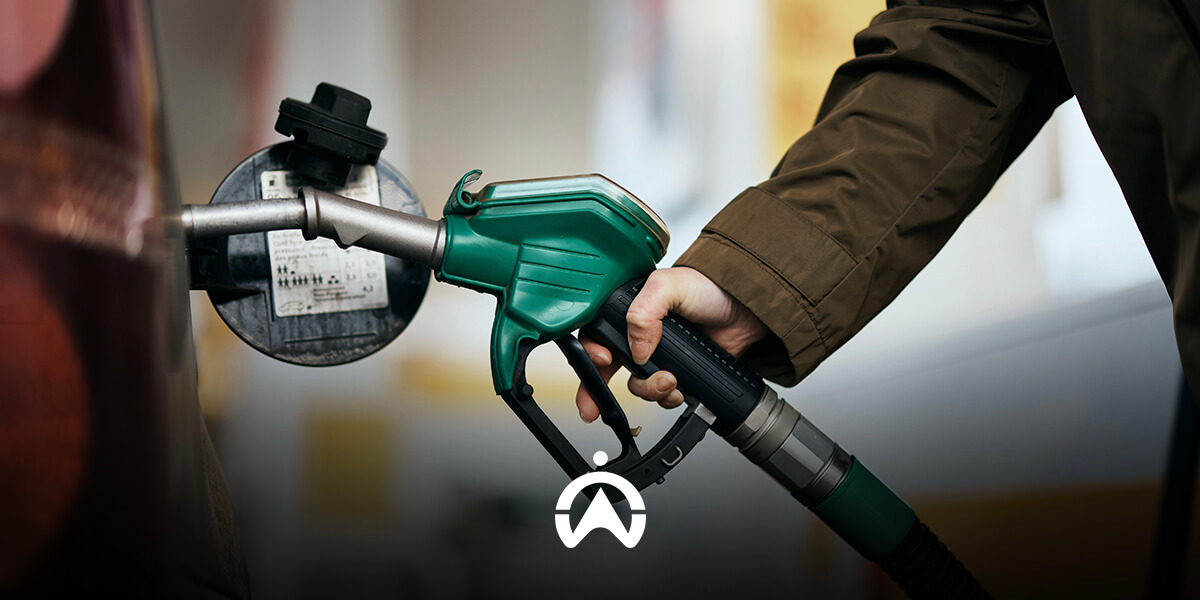- Solutions
- The Company
- About usCartrack offers smart fleet solutions guaranteed to optimise your fleet and workforce, no matter how big or small your business.
- Investor RelationsCartrack has a history of strong cash flow generation and cash conversion, low financial leverage and strong dividends.
- CareersCareers portal. View all the current Cartrack career openings and opportunities available.
- Resources
- Contact Us
- Bahasa
- Login
What Causes High Fuel Consumption in Petrol Engines

---- 2024/11/22 ---
Vehicles with petrol engines are well known for their performance and fuel-hungry tendencies if they’re not managed properly. Understanding what causes high fuel consumption is the first step in better fuel management.
In this blog, we will cover everything from what causes high fuel consumption in your fleet to how telematics can assist you in reaching your fuel-saving goals. So, let’s dive right in.
The causes of high fuel consumption in petrol engines
Whether we’re fleet managers or private vehicle owners, we’ve all dreaded driving into the petrol station at some point. Or even on multiple occasions because we know that a cent will leave our pockets for every drop filling our tanks. High fuel consumption in petrol engines is caused by many factors, such as:
- Driver behaviour:
Have you ever thought, “I am an excellent driver”, as you skidded and almost bumped the sidewalk while going around a sharp corner? Or, have you ever thought that this must be going through one of your drivers’ minds when you see them coming around that corner? We hope not!
Managing your drivers’ bad driving habits can be challenging, especially if you don’t know their bad habits, so being able to monitor their driving can help you increase workplace safety and compliance.
- Vehicle maintenance:
Imagine driving with your windows down, music blasting, and the wind blowing through your hair, and suddenly, all your warning lights go on, and your car sputters to a pathetic halt. Did you forget to service your vehicle? Staying on top of your vehicle maintenance and regular servicing can feel like admin, but it is crucial for avoiding downtime, optimising your vehicle’s fuel efficiency, and ensuring uninterrupted off-key singing as you face the daily traffic.
- Vehicle load management:
Most of us have seen a truck on the highway that’s so overloaded that it looks like it will topple over as soon as it hits the next pothole. Whether you’re a fleet driver or manager or you’re helping your cousin move to a new town, it’s crucial to understand the risks of overloading and how this can affect your fleet or vehicle’s fuel efficiency. Stick to the vehicle’s limits to allow your engine and fuel budget to thrive.
- Traffic conditions:
Sitting in traffic sometimes looks like this: Singing a song (off-key again), wondering whether the traffic would have been better if you left just ten minutes earlier. Staring into space—or at fellow motorists—and wishing you could just switch to the lane you’re supposed to be in but are unable to do so because traffic is packed like a buffet lunch plate on a Sunday afternoon. Worst of all, your petrol engine is idling, wasting precious fuel.Did you know that idling a 3-litre vehicle for 10 minutes can waste approximately 300ml of fuel? That is more than a cup of fuel wasted every 10 minutes.
Whether you’re driving your private vehicle or managing a fleet, the factors contributing to fuel efficiency remain relatively the same. So, would it make a difference if these vehicles ran on diesel? Let’s compare the two.

Petrol engines: the fuel-mongers
There are various reasons why petrol engines use a lot of fuel. Let’s look at some of them:
- Lower thermal efficiency:
In general, petrol engines have lower thermal efficiency than diesel engines. What does this mean? Engine thermal efficiency is the percentage of the fuel’s energy used to power the engine rather than using it for other components such as the exhaust or coolant. A higher thermal efficiency means that the engine uses fuel more effectively.
- Stoichiometric ratio:
A stoichiometric ratio refers to the ideal balance of air and fuel in an engine, which allows an engine to use fuel efficiently without leaving any unburned fuel or extra air behind. Petrol engines can be pretty finicky, and because of their finicky nature, they require precise air-fuel ratios (approximately 14.7:1) for the most desirable combustion conditions. To ensure that combustion is complete, petrol engines tend to use more fuel, specifically when the vehicle is overloaded or accelerates regularly.
- Three-for-one: Driving conditions, driver behaviour and petrol engines:
Driving conditions, bad driving habits, and a petrol engine equals high fuel consumption every time. Poor driving conditions include stop-and-go traffic, which consumes more petrol because of frequent idling and acceleration. Bad driving behaviour includes aggressive acceleration and braking, resulting in higher fuel usage.
- Energy density of fuel:
Petrol engines tend to have a lower compression ratio than diesel engines, which makes them less fuel efficient and use more fuel.
- Higher RPM operation:
Petrol engines operate at higher revolutions per minute (RPM) than diesel engines do. Higher RPMs lead to higher fuel consumption because more fuel is injected into the vehicle’s engine to maintain the speed and power at which the vehicle is operating.
How do fuel costs influence your operational dynamics?
Fuel consumption is one of the biggest expenses of any fleet business. Here are four ways that it can impact different parts of your business:
- Rising operational costs
- Increased fuel prices: Fuel prices regularly yo-yo in South Africa because of factors such as global oil prices and fluctuating currency exchange rates. A rise in fuel prices directly impacts businesses’ operational costs, especially if they rely on vehicles for services such as making deliveries.
- Managing your budget: Operational budgets must constantly be adjusted because of fuel expenses, which impacts the availability of funds for other operational needs such as maintenance and staffing.
- Increased fuel prices: Fuel prices regularly yo-yo in South Africa because of factors such as global oil prices and fluctuating currency exchange rates. A rise in fuel prices directly impacts businesses’ operational costs, especially if they rely on vehicles for services such as making deliveries.
- Profit margin implications
- Profit decline: Organisations with slim margins can have a smaller profit margin caused by their fleet’s high fuel consumption. The more fuel the fleet needs, the bigger the impact on the business's profits, especially for businesses that operate in transportation or delivery services.
- Adjusting prices of services and products: To maintain profitability, businesses might have to change the prices of their products and services, which might negatively affect their standing as competitors and their customers’ satisfaction.
- Profit decline: Organisations with slim margins can have a smaller profit margin caused by their fleet’s high fuel consumption. The more fuel the fleet needs, the bigger the impact on the business's profits, especially for businesses that operate in transportation or delivery services.
- Supply chain efficiency
- A rise in logistics costs: Your supply chain efficiency might be influenced by higher product costs caused by high fuel consumption, primarily if your fleet operates in the manufacturing, retail or distribution industries.
- A need for route optimisation: Organisations might consider investing in route optimisation tools. Although it might be an additional expense every month, it will reduce fuel costs wasted on unoptimised travelling routes.
- A rise in logistics costs: Your supply chain efficiency might be influenced by higher product costs caused by high fuel consumption, primarily if your fleet operates in the manufacturing, retail or distribution industries.
- Fleet management challenges
- Maintaining your fleet vehicles: Wear and tear on your vehicle is often a result of higher fuel consumption because it increases the strain on your engine. When a vehicle uses more fuel, it works harder due to aggressive driving, cargo overload, or inefficient operations.
- A lack of fuel-efficient vehicles: Organisations might have to consider investing in more fuel-efficient cars to combat high fuel consumption and costs.
- Maintaining your fleet vehicles: Wear and tear on your vehicle is often a result of higher fuel consumption because it increases the strain on your engine. When a vehicle uses more fuel, it works harder due to aggressive driving, cargo overload, or inefficient operations.

How Cartrack can help you skyrocket your petrol engine’s fuel efficiency
Managing your fleet while trying to lower your fleet’s fuel consumption, or even just managing it better, can be pretty tricky. At Cartrack, we offer multiple solutions to every fleet management problem you might have, some of which include:
- At Cartrack, we can help you optimise fleet drivers' routes.
- We can help you track your drivers’ behaviour and identify any harsh driving habits they might have, all while giving you coaching tools to improve those behaviours.
- You can get a range of different reports to monitor your fleet's fuel consumption, driver behaviour, and CO2 emissions, among other things.
- Create maintenance reminders and get notified in advance when your vehicles are due for a service.
Don’t let fuel costs rule you: rule it with Cartrack
Contact Cartrack today and discover a new way to lower fuel consumption in your petrol engine.













 Select Countries
Select Countries